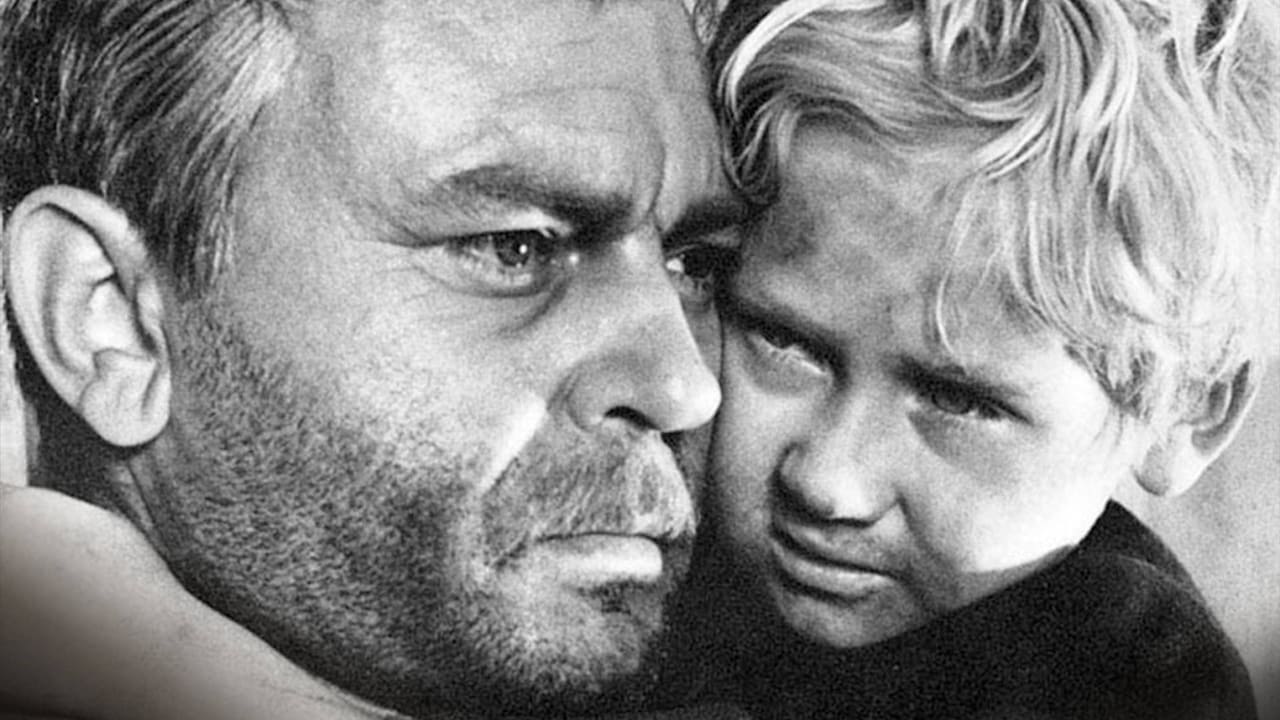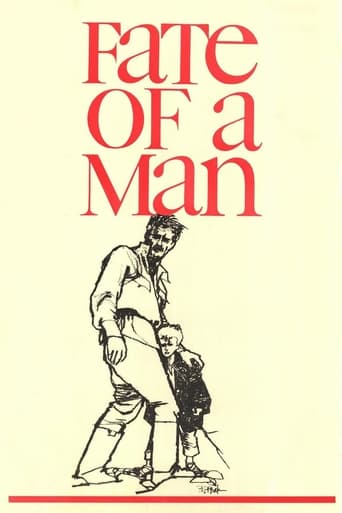



Very Cool!!!
SERIOUSLY. This is what the crap Hollywood still puts out?
View MoreOne of my all time favorites.
This movie feels like it was made purely to piss off people who want good shows
View MoreBuried under the mountain of clichés that typically entail a war film (although perhaps not so pronounced for the era), Fate of a Man is a genuinely emotional, well crafted movie that deftly handles the subjects of loss and resolve. What differentiates Bondarchuk's film from the litany of uninspired works, from any nationality, is the prowess with which he employs said mountain of clichés not just as a device to prop the plot upon, but instead as a means to explore the depths of the human trauma that results from war.Under the relative creative freedom the "Thaw" provided, Bondarchuk's work is highly subjective and seemingly draws influence from Italian neorealism. Sokolov is a man who lived contentedly, before the war took everything from him. The story is divulged from his first person account, intimately executed through voice over. Each shot is visual progression in his emotional journey. The neorealist value of characters' space and their movement through it realizes this sense of progression. To cite an example, we simply have to look at buildings and characters' relation to them. Solokov meets his wife constructing a home. Prewar life is warmly attached to these buildings (homes and factories), a sense of fulfillment and love residing within. Returning home after the war we see shots of lumbering skeletons of bombed out factories, everyday life stripped of the flesh that once gave it meaning. This sequence culminates in Sokolov's discovery of the crater where his family home once was. Attention to small details such as a bed frame sticking out of the puddle of water in the crater make it especially heart wrenching. Speaking more specifically about physically inhabiting a space, there are a couple of striking shots. One example is in the scene where the Nazi's call out men from a line for execution. After the doctor who helps Sokolov is removed from his place in the line, the camera lingers on the empty space where he once was for several seconds. It's small moments like these that make the audience really internalize the sense of loss rather than just sigh a quick mandatory, "Awww." There are moments in the film where the melodrama reaches distasteful limits, along with some poorly conceptualized and executed editing (ex. Water on the lens to fade in and out of early flashbacks). However, Fate of a Man is a special film, improperly served in this brief review.
View Morethe novel by Sholokhov. the performance of Bondarchuk. the wise script. the close-up. and the life of a man who seems be only new Job. a film who impress not only for the drama but for its profound poetry of small details. a confession. and the hope. the war's traces. and the future as new beginning. it is part of a long chain who defines the Soviet cinema as artistic treasure. it is, in same measure, fruit of a political situation. but, more important, it is a fine work. because it reflects human feelings, duties and pain out of ideological circle. because it is an universal story. and one of beautiful examples of high cinema. that could be all. not a great show but useful exercise about the force of art. and, sure, for the Eastern public, a travel in history, against wars, crisis, disasters. and cases of survive.
View MoreDestiny of a Man is an extremely genuine exploration of a Russian soldier's experience during the "Great Patriotic War," that strips him of everything he loves. Director Sergei Bondarchuk portrays a character whose struggles, sadness, and heroism feel astonishingly real. His acting brings audiences through a series of scenarios that demonstrate the pain and suffering caused by the conflict at home and on the front.The film is a continuation of the departure in the late 1950s from the Stalin Era's socialist realism into the postwar period of actual realism, in which characters act based on believable motives whether or not they follow the party line. Sokolov survives innumerable atrocities, bravely facing his Nazi tormentors, not for Mother Russia, but for the love of his family. In fact, the state plays very little role in the film at all, and it is very much the story of its protagonist, a story that is emotionally relevant in a very universal way.The film is honest and humble, but proceeds with a powerful style that underscores its raw humanity. It is marked by a motif of elevation, with Sokolov's emotions manifested in the highs and lows of shots and locations throughout his ordeal. He meets his wife while building a house, standing high above the ground. In scenes of suffering, including one in which he must lie on the ground in a Nazi detention camp, he is low to the ground, looking up at the imagined members of the family he so wishes to see. Likewise he ascends through his village to be reunited with his family, he reaches the depths of despair as he descends into the crater where his house stood. In the end, the message is a positive one. Much like Veronika in the earlier film The Cranes are Flying, Sokolov begins to rebuild his life around an adopted son who has also lost everything in the war. Troubles continue to plague the man and his country, but he is not alone, a simple message that matches the humanity woven throughout the film.
View MoreThe work is absolutely stunning visually, at times radical in its framing. It is perfectly understandable that since the film was made only 5 years after Stalin's death the political strictures under which it was made forced the director to be careful to avoid depicting the persecution suffered by returning Soviet POW's under his rule, but by focusing on the suffering they, and most particularly the protagonist, experienced as prisoners in German work camps and the steadfast and heroic endurance they maintained in the face of cruelty and hardship he is completely successful in politically rehabilitating them as patriots, both for their contemporaries and for Soviet posterity. A beautiful and at times quite moving film. Highly recommended.
View More